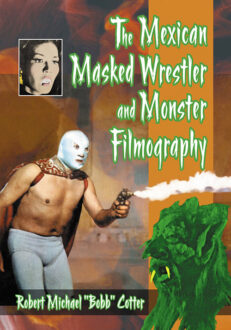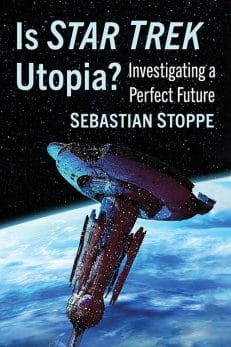Subtotal: $19.99
Is Star Trek Utopia?
Investigating a Perfect Future
$39.95
In stock
About the Book
Star Trek has transcended science fiction through its use of elements that have crucial roles in classical utopian tradition. New technologies change a civilization, a miniature society unfolds on a spaceship, and an android teaches humanity. Star Trek has been answering many questions about our own world for 50+ years, and since the days of Captain Kirk, the franchise has become one of the world’s best-known cultural phenomena.
This book documents what the Star Trek franchise has in common with classic utopias. Chapters analyze how technology changes society and how the Federation embodies utopian ideals. Also explored are the political relations among alien species that reflect past and present conflicts in our real world and how the Borg resembles an anti-utopian society.
About the Author(s)
Bibliographic Details
Sebastian Stoppe
Format: softcover (6 x 9)
Pages: 204
Bibliographic Info: 7 photos, notes, bibliography, index
Copyright Date: 2022
pISBN: 978-1-4766-8636-3
eISBN: 978-1-4766-4668-8
Imprint: McFarland
Table of Contents
Preface 1
Introduction: Why Star Trek Matters 5
1. The Meaning of Utopia 11
2. How Technology Changes Society 41
3. Life in Space: Utopia on a Ship 57
4. Politics in Star Trek 73
5. Anti-Utopia: The Borg 125
6. Post-Utopia: Does Star Trek Become Darker? 141
7. How Utopian Is Star Trek? 158
Chapter Notes 165
Works Cited 175
Index 191
Book Reviews & Awards
• “This book expands on existing literature of Star Trek as a utopia, and as a political utopia, and does so in a nicely nuanced way. It will be useful to scholars for some time.”—Matthew Wilhelm Kapell, Pace University
• “A very fascinating combination of fan culture and research…”—Prof. Dr. Lars C. Grabbe, University of Applied Sciences, Münster

 Rosalie Gardiner Jones and the Long March for Women's Rights
Rosalie Gardiner Jones and the Long March for Women's Rights 





